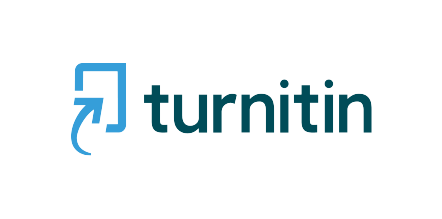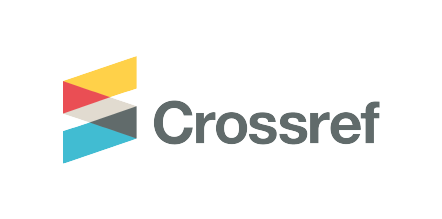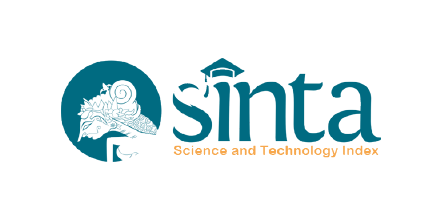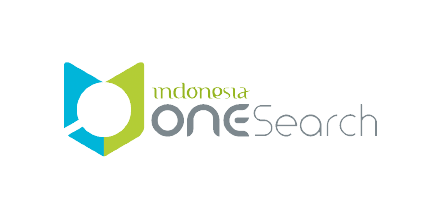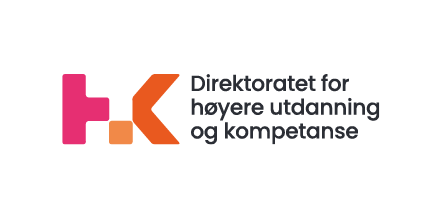Experiences of Persons with Disabilities in Starting and Maintaining Sexual Relationship in African Universities
DOI:
https://doi.org/10.21776/ub.ijds.2018.5.2.10Keywords:
sexuality, persons with disability, university students, university education, African philosophyAbstract
Despite discrimination, isolation and marginalization, many African University students with disabilities engage in sexual relationships. Some of these relationships involve only those with disability and others are between those with and those without disability. This paper discusses the opportunities, experiences, challenges and strategies that University students with hearing, physical and visual disabilities have to start and maintain sexual relationships at Kyambogo University, Uganda. Results show that their sexual behaviours are shaped by their perceptions, the environment and African culture and traditions rooted in African Ubuntu philosophy. The conclusion is that the university provided opportunities and challenges to their sexual relationships and that those with positive attitudes enjoy healthy sexual relationships and were also better able to deal with relationship pressures that might negatively affect their relationships.
References
Abimanyi-Ochom, J. & Mannan, H. (2014). Uganda’s disability journey: Progress and challenges. African Journal of Disability 3(1), Art. #108, 6 pages. http://dx.doi. org/10.4102/ajod.v3i1.108.
Berghs, M. (2017). Practices and discourses of ubuntu: Implications for an African model of disability? African Journal of Disability 6, a292. https://doi.org/10.4102/ajod.v6.292.
Butterworth, B. (2018). Ugandan MPs want to reintroduce anti homosexuality law that could imprison gay people for life. Pink news.co.uk, http://google.com accessed 10th May 2018.
Bryman, A. (2008). Social Research Methods. New York: Oxford University Press.
Fasokun, T., Katahoire, A. &Oduaran A. (2005). The Psychology of Adult Learning in Africa.
Cape Town: UNESCO Institute of Education.
Henning, E., Van Rensburg, W., &Smit, B. (2004). Finding your way in qualitative research Pretoria: van schaik.
Hollomotz, A. (2008). "May we please have sex tonight?" People with learning difficulties pursuing privacy in residential group settings. British Journal of Learning Disabilities. p. 91-97.
Hornby, A.S. (Ed). (2010). Oxford Advanced Learner's dictionary. Oxford: Oxford University Press.
Johoda, A. & Pownall J. (2014).Sexual understanding, sources of information and social networks; the reports of young people with intellectual disabilities and their non-disabled peers. Journal of Intellectual disability Research (2014).Vol 58 part 5, pp 430-441.
Kithome, L. K. (2004). An exploration of women's transformation through distance learning in Kenya. PhD thesis, University of KwaZulu-Natal Pietermaritzburg.
Kyambogo University (2014).Kyambogo University disability policy. Kampala: Kyambogo University
Kyambogo University (2005). Kyambogo University Prospectus 2005. Kampala: Kyambogo University.
Landau, E., Verjee, Z,. & Mortensen, A. (2014). Uganda President: Homosexuals are "disgusting". CNN .com. http://www.edition.cnn.com/2014/02/24/world; accessed 10th May 2018.
Liu, C. (2013). Academic and social adjustment among deaf and hard of hearing college students.Taiwan; University of Kansas.
Lwanga-Ntale, C. (2003). Chronic Poverty & Disability in Uganda. Paper presented at the International Conference, Staying Poor: Chronic Poverty and Development Policy, Manchester, UK.
Mannan, H., 2014, "Uganda's disability journey: Progress and challenges", African Journal of
Disability 3(1), Art.#108, 6 pages. http://dx.doi. org/10.4102/ajod.v3i1.108
Mugabi, S.I. (2018). Kadaga blasts European MPs over homosexuality. nilepost.co.ug>2018/03/29> accessed 10th May 2018.
Nafukho, F., Amutabi, M. &Otunga, R.(2005) Foundations of Adult Education in Africa. Cape Town: UNESCO Institute of Education.
Ndlovu, S. & Walton, E. (2016). Preparation of students with disabilities to graduate into professions in the South African context of higher learning: Obstacles and opportunities". African Journal of Disability 5(1), Art. #150, 8 pages. http://dx.doi. org/10.4102/ajod.v5i1.150.
Nuwagaba & Rule (2015). Navigating the ethical maze: ethical contestations in an African context, Disability & Society, 30:2, 255-269.
Nuwagaba, E. L. (2013). "Ugandan case studies of adult learning practices of persons with disabilities regarding microfinance". PhD thesis, University of KwaZulu-Natal, Pietermaritzburg.
Omede, A. A. (2014). Information and Communications Technologies in Special Needs Education: Challenges and Prospects. European Journal of Business and Management,6(39), 1. Retrieved March 4th 2018 from: www.iiste.org.
Onyulo, T. (2017). Uganda’s other refugee crisis: Discrimination forces many LGBT Ugandans to seek asylum. http://www.USAToday.com>world 13th July 2017 accessed 10th May 2018.
Reason, R.D. & Rankin, S.R. (2006). College students’ experiences and perceptions of harassment on campus: An exploration of gender differences. The College Student Affairs Journal Fall, 2006, vol 26 no. 1.
Richards, D., Miodrag, N. & Watson, S.L. (2006). Sexuality and development disability: Obstacles to health sexuality through the lifespan. Developmental disabilities Bulletin (2006). No.1 & 2, pp 137-155.
Rule, P., & John, V. (2011).Your guide to case study research. Pretoria: Van Schaik Publishers.
Travers, J., Tincani, M., Whitby, P.S. & Boutot, E.A (2014). Alignment of Sexuality Education with Self Determination for People with Signiï¬cant Disabilities: A Review of Research and Future Directions. Education and Training in Autism and Developmental Disabilities, 2014, 49(2), 232-247.
Uganda National Council of Science and Technology. (2007). National guidelines for research involving humans as research participants. Kampala: Uganda National Council of UNESCO (2006). ICTs in education for people with special needs. Moscow: Institute for Information Technologies in Education Specialized Training Course.
Wickenden, A., Nickson, S. & Yoshida, K.K. (2013).Disabling sexualities: Exploring the impact of the intersection of HIV, disability and gender on the sexualities of women in Zambia. African Journal of Disability 2 (1), Art. http;//dx.doi.org/10.4102/ajod.v2i1.50
WHO. (2010a). Community based rehabilitation guidelines: Supplementary booklet. Geneva: World Health Organisation.
WHO. (2010b). Community based rehabilitation guidelines: Education component. Geneva: World Health Organisation.
Zembylas, M. (2008). Engaging With Issues of Cultural Diversity and Discrimination through Critical Emotional Reflexivity in Online Learning. Adult education quarterly, 59(61), 61-82.
Downloads
Published
How to Cite
License
Copyright (c) 2018 Ephraim Lemmy Nuwagaba

This work is licensed under a Creative Commons Attribution-NonCommercial 4.0 International License.








